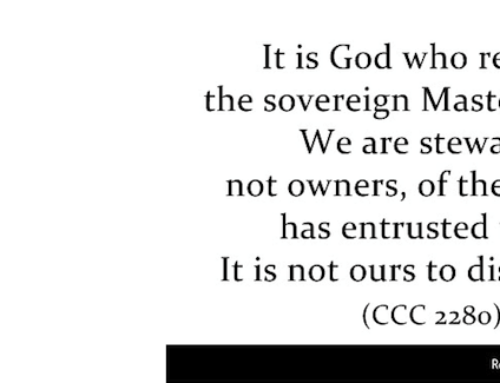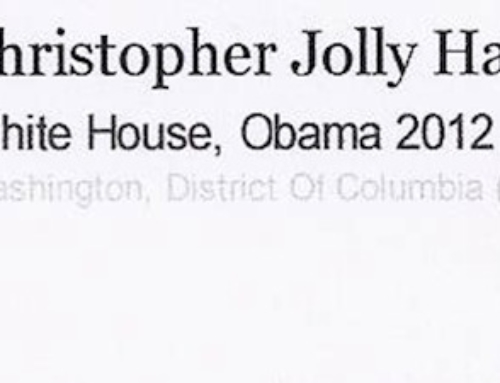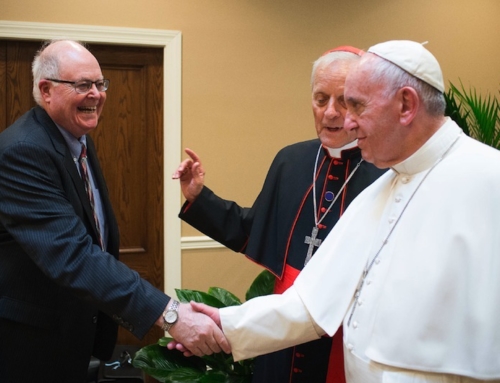By Bill Donohue
This article was originally published by CNSNews.com on October 7, 2016.
A federal judge has ruled that a Long Island health care company must submit to a trial for allegedly discriminating against its employees by forcing them to pray and participate in an array of spirituality exercises. In 2014, the Equal Employment Opportunity Commission sued the business, accusing it of violating the religious rights of employees. Now the case is moving forward in the courts.
The evidence shows that this was a full-throated attempt to establish a cult in the workplace. It also exhibited an animus to Christianity, especially Catholicism (e.g., banning Catholic statues from desktops while erecting statues of Buddha). While this particular program is unique, workplace spirituality is a growing enterprise, and much of what is happening is cause for concern.
United Health Programs of America, a subsidiary of Cost Containment Group, is charged with forcing workers to join programs such as “Onionhead” and “Harnessing Happiness.” Mandatory counseling sessions, most of which violated every professional tenet, were routine. Fortunately, some workers, which included Catholic women, had had enough and brought suit.
Onionhead was created 20 years ago to allegedly help people live more peaceful and successful lives. The program that is under litigation was introduced by the CEO of United Health Programs in 2007; he argued that it would improve communication and teamwork. He conveniently hired his aunt, Linda “Denali” Jordan, as chief consultant. She is the founder of Harnessing Happiness, and the driving force behind this attempt at cult formation.
The list of objections raised by employees is plentiful. At their worst, they represent a serious attempt at mind control. Indeed, as will be pointed out, some of the techniques used by United Health Programs were perfected by totalitarian dictators in the 20th century. The following examples are representative of the least offensive exercises.
- Workers were required to “pray, hold hands in a prayer circle, read spiritual texts, light candles, burn incense to remove bad energy, listen to meditation music playing throughout the workplace, and use low lighting in their offices because, according to Denali, demons came through the overhead lights.”
- Workers were required to say “I love you” to colleagues and management.
- Workers were required, on a weekly basis, to “take part in group staff meetings where managers led discussions of religious issues.”
- Workers were required to “hold hands in a prayer circle,” leaving customer service phones unanswered during these sessions.
The following represent the most offensive exercises: they are classic cult-forming tactics.
- Workers were required to meet monthly with Denali for their “one-on-one sessions.” They were pressured to “share personal and private, non-work related matters, including a friend’s suicide, parental issues, family and marital strife, the death of loved ones, and the employees’ serious health conditions.”
- “After employees discussed their private matters in one-on-one sessions under Denali’s guarantees of confidentiality, Denali frequently revealed the private matters to other employees, including family members of the sharing employee. Denali would often use the private, confidential information to pit employees against each other.”
- When Denali was traveling, she selected some workers to be her “eyes and ears at the office, requiring them to notify her of any expression of opposition to the religious practices.”
Under Hitler, Stalin, and Mao, they routinely turned family members against each other, forcing them to make accusations—all of which were patently false—against their loved ones: they were ordered to do so in their presence. Before the masses could give of themselves to the state, the tyrants reasoned, they had to first rid themselves of their most important allegiances.
It is a staple in the arsenal of cult leaders to smash the most natural bonds that exist—between family members—so that the broken individual will be drawn to find a new bond with the cult guru. This is exactly what Jim Jones did to his subjects in Jonestown—he owned them financially, sexually, and psychologically—resulting in the mass suicide of over 900 persons.
What makes Denali different from Jones is that her recruits were involuntarily chosen—the fully atomized individuals who joined Jones did so at their own volition. This also explains her failure: she did not have a captive audience, though she sought to create one.
Since the 1990s, there has been a spike in workplace spirituality. Much of it is an expression of the larger multicultural agenda, which is expressly opposed to the Judeo-Christian ethos. And some of it is destructive.
It is hardly controversial to say that our society has an abundance of narcissistic and dysfunctional men and women, poor souls in desperate search for meaning. Many are looking to find religious experiences shorn of the kinds of commitments and commandments associated with Christianity. They want a New Age experience, one that allows them to feel good without submitting to authority. Unfortunately, instead of finding Nirvana, they find Denali.
Bill Donohue is President and CEO of the Catholic League for Religious and Civil Rights, the nation’s largest Catholic civil rights organization. He was awarded his Ph.D. in sociology from New York University and is the author of seven books and many articles.








